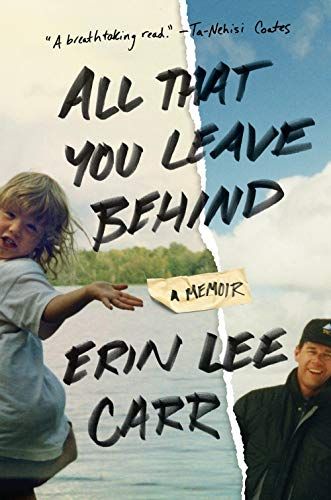Erin Lee Carr is the director behind numerous true-crime documentaries, including the two-part series, I Love You, Now Die, debuting on HBO July 9th and 10th.
I’ve always been drawn to true-crime stories. My father, David Carr, started off as a crime reporter, and I grew up seeing how black and white the criminal justice system can be. I wanted to explore the gray areas, and I felt like I could add something to the equation with these types of stories. As a young woman who has experienced alcohol addiction and sobriety, I want to share stories about girlhood and mental health that are nuanced and empathetic.
But directing these documentaries, ones that focus on extremely intense subject matter—like Mommy Dead And Dearest, about Gypsy Rose and Dee Dee Blanchard, who suffered from Munchausen syndrome by proxy, and At The Heart Of Gold, about the USA Gymnastics sexual abuse scandal—has never been easy.
While making I Love You, Now Die, which follows the case of Michelle Carter, a teen who encouraged her boyfriend, Conrad Roy III, to kill himself via text, I spent months exploring the concept of suicidal ideation.
It was so hard to see all the missed opportunities that Conrad had to talk to someone else about his obsession to commit suicide. There were so many things that led to the moment of his death, and so many places where it could have gone differently. Being immersed in that world made it difficult to feel joy sometimes. If I had my druthers, I don’t know that I would do it again. You have to be really careful about what you boil your brain in.
It’s a challenge to leave work behind at the end of the day. I want to lament to someone about these subjects, and it’s led to a lot of lovely boyfriends feeling irritated with me. My hat goes off to anyone who can work in the mental health space and come home at the end of the day and kiss someone. Luckily, my sister is a mental health professional, and she’s better equipped to talk through these things. Therapy, recovery meetings, and hanging out with babies and dogs as much as possible help me feel balanced.

As difficult and consuming as the work is, I know these stories are important ones to tell, and that drives me. It feels helpful to be a part of the dialogue around these taboo subjects. There’s such a risk of feeling “othered” if you talk about suicide or having suicidal thoughts. But you’re not alone in your emotions. And one way I can make other people more comfortable sharing their own stories is by being open about mine.
When you’re an alcoholic like me, you’re not supposed to identify that you’re in recovery, for fear that that might jinx it somehow. But I believe relapse is part of recovery, and if that happens, it’s not because I talked about it; it’s because I have a disease. There are some parallels there between addiction and suicide.
Writing about my addiction and grieving my father’s death in my memoir, All That You Leave Behind, has really helped me be more vulnerable and honest in the rest of my work. When I first started interviewing subjects for documentaries, I wouldn’t really share anything about myself. Now, I try to open up to them the way they’re opening up to me.
It’s not that I’ve been through that same things, but I have a story like they have a story, and I want them to know that I’m going to honor that story because I might understand how difficult it is and how incredibly vulnerable they have to be to talk about it. I let subjects ask me questions now. I’m an open book, and I feel more confident and relatable as a human. And I hope it helps them feel safe.
https://www.instagram.com/p/Byc4_9AlYnR/
Angry muppet makes things. Dream life late to #femalefilmmakerfriday 📸: @bjboult @shanesigler let me take a peek!
A post shared byELC (@erinleecarr) on
Looking for the grays and humanizing all of the subjects in these true crime stories has made me more forgiving toward people in my own life. It’s still easier to see nuance in other people’s stories, but I’m working on giving myself that empathy too.
As told to Kristin Canning
“I Love You, Now Die” is part of a new crime series on HBO, which also features the films “Behind Closed Doors,” premiering July 16th and 17th, and “Who Killed Garrett Phillips?” premiering July 23rd and 24th.
Source: Read Full Article
